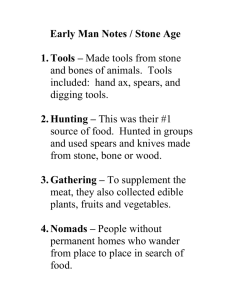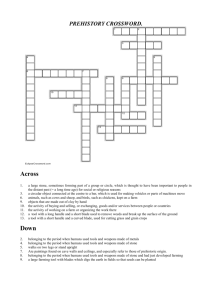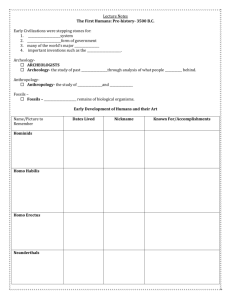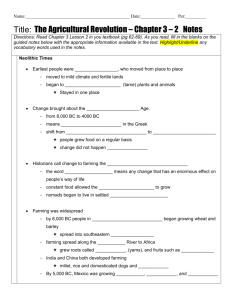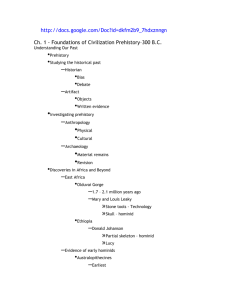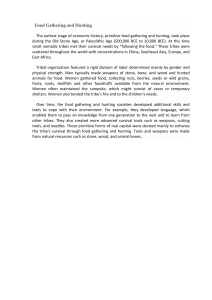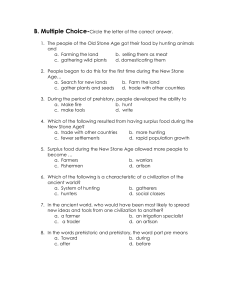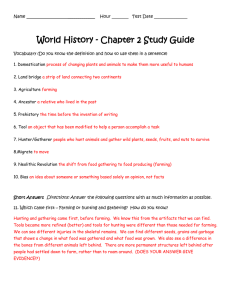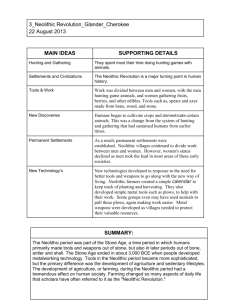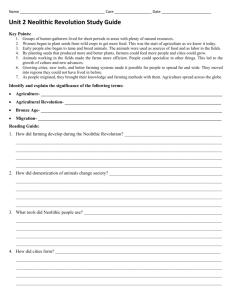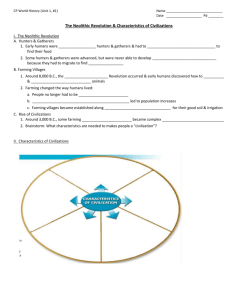Chapter 1: The First Civilizations Section 1
advertisement
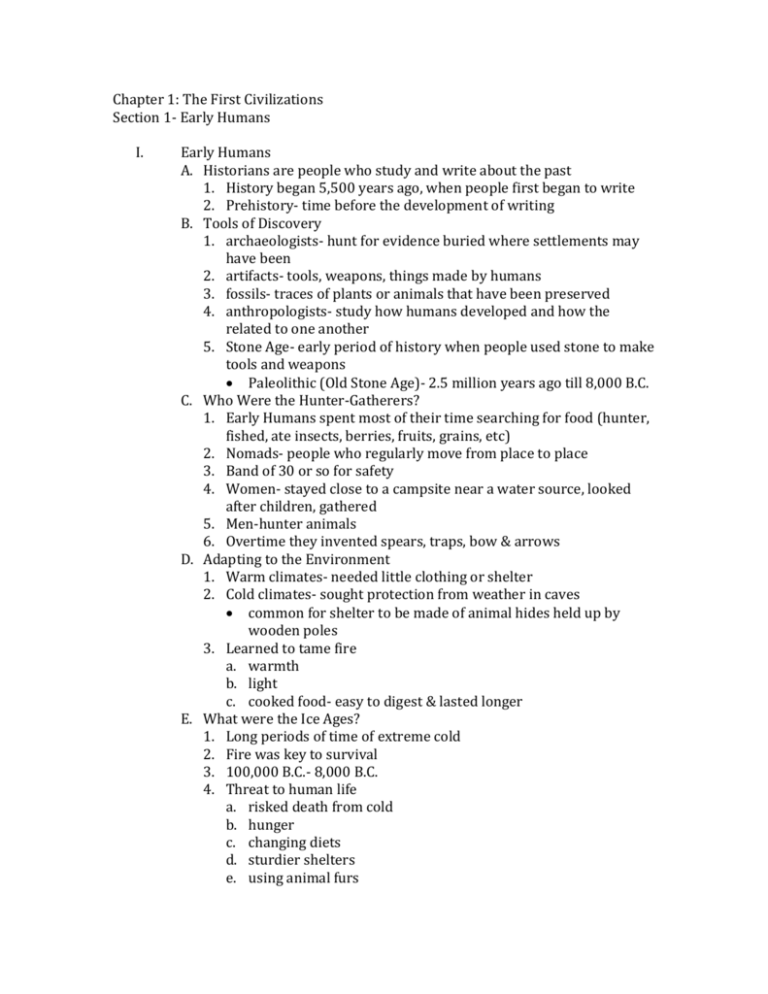
Chapter 1: The First Civilizations Section 1- Early Humans I. Early Humans A. Historians are people who study and write about the past 1. History began 5,500 years ago, when people first began to write 2. Prehistory- time before the development of writing B. Tools of Discovery 1. archaeologists- hunt for evidence buried where settlements may have been 2. artifacts- tools, weapons, things made by humans 3. fossils- traces of plants or animals that have been preserved 4. anthropologists- study how humans developed and how the related to one another 5. Stone Age- early period of history when people used stone to make tools and weapons Paleolithic (Old Stone Age)- 2.5 million years ago till 8,000 B.C. C. Who Were the Hunter-Gatherers? 1. Early Humans spent most of their time searching for food (hunter, fished, ate insects, berries, fruits, grains, etc) 2. Nomads- people who regularly move from place to place 3. Band of 30 or so for safety 4. Women- stayed close to a campsite near a water source, looked after children, gathered 5. Men-hunter animals 6. Overtime they invented spears, traps, bow & arrows D. Adapting to the Environment 1. Warm climates- needed little clothing or shelter 2. Cold climates- sought protection from weather in caves common for shelter to be made of animal hides held up by wooden poles 3. Learned to tame fire a. warmth b. light c. cooked food- easy to digest & lasted longer E. What were the Ice Ages? 1. Long periods of time of extreme cold 2. Fire was key to survival 3. 100,000 B.C.- 8,000 B.C. 4. Threat to human life a. risked death from cold b. hunger c. changing diets d. sturdier shelters e. using animal furs F. Language, Art, Religion 1. Spoken language developed-easier to pass on knowledge 2. Art- crushed yellow and red rocks to make powders for paint on cave walls MAYBE for religion meaning or luck for hunting G. The Invention of Tools 1. technology- tools and methods to help people perform a task fishhooks, axes, hunting spears, needles H. Neolithic Times (New Stone Age) 8,000 B.C.- 4,000 B.C. 1. Began to domesticate (tame) animals and plants for human use a. animals provided milk, meat, wool, labor b. people learned to grow food and farming replaced hunting and gathering I. Why was farming Important? 1. Farming revolution (change that greatly affects many areas of life) – most important event in human history?? 2. People in different parts of the world discovered how to grow crops at the same time J. Growth of Villages 1. Farmers stayed close to their field to water their plants, keep animals away, and harvest 2. Began to live in villages with permanent homes 3. Jericho- one of the oldest villages in the West Bank between what is now Israel and Jordan- 8,000 B.C. 4. Catal Huyuk- in present day Turkey 6700 B.C.- 5700 B.C. a. lived in mud-brick houses packed together decorated w/ wall paintings b. places of worship c. farming, hunting, raised animals, ate fish and bird eggs I. Benefits of a Settled Land 1. Neolithic people had greater security 2. Steady food supply led to healthy, growing populations 3. More workers to produce more crops 4. Began to trade extra foodstuffs 5. Specialization- development of different types of jobs 6. Skills- pottery, weaving cloth and also traded these goods 7. Toolmakers improved farming tools (stickle for cutting grain) 8. Used copper for tools and weapons 9. Bronze Age 3000B.C.- 1200B.C.
